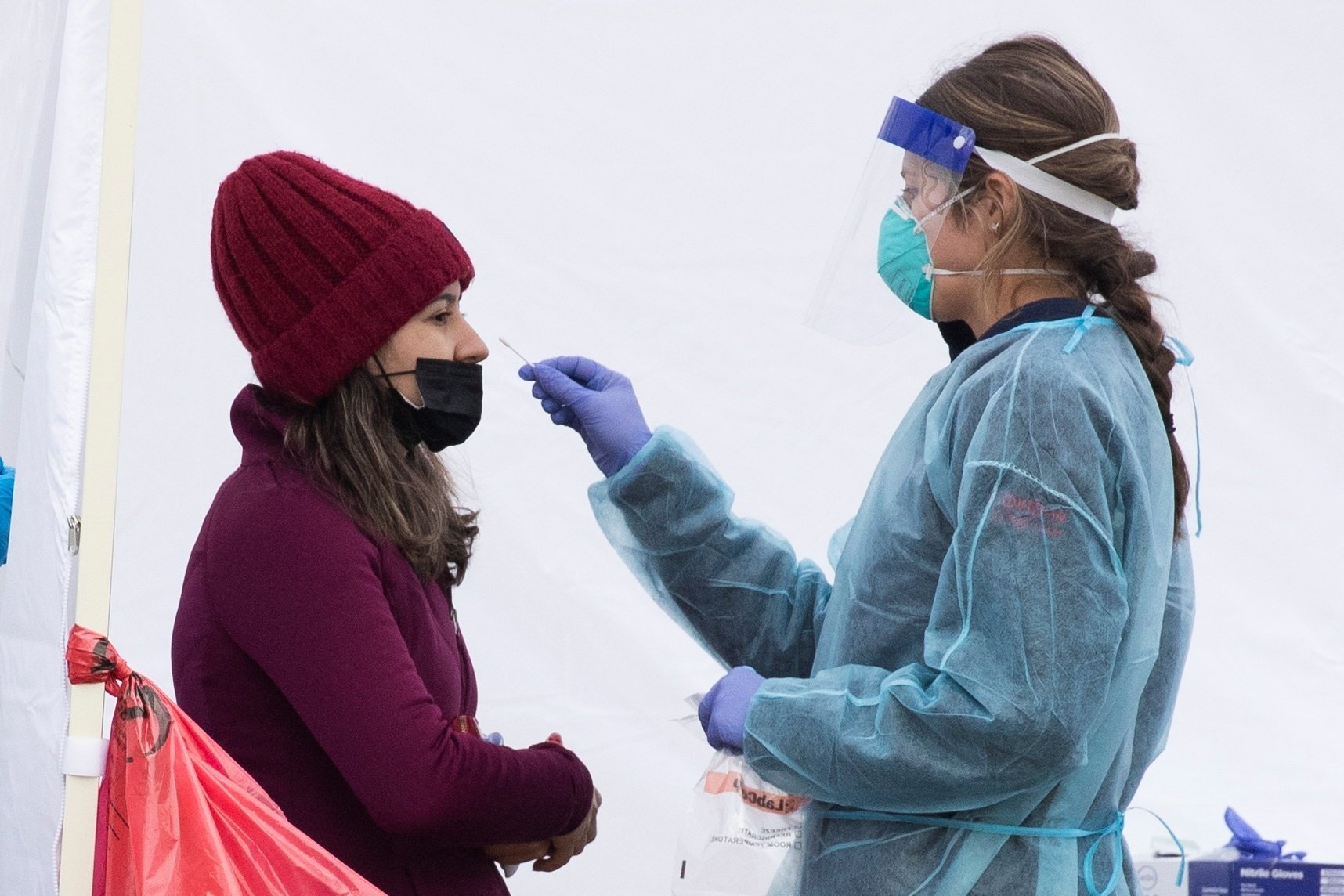The Catalan government has announced that it plans to extend the current restrictions against Covid-19 for two more weeks - that is, the curfew, the closure of the nightlife sector and the capacity limits that came into force on December 24th. In addition, the list of municipalities where the restriction on night mobility will apply has been updated. The extension is likely to be approved tomorrow by the Procicat civil protection committee, in a resolution that will then be sent to the High Court of Catalonia (TSJC). Just before Christmas, the court already endorsed an initial two week period for these same measures.
Thus, it seems likely that the ban on mobility from 1am to 6am will be maintained for another 14 days - until Friday, January 21st - in municipalities with more than 10,000 inhabitants whose 7-day cumulative incidence (IA7) is in excess of 250 cases per 100,000 people. The existing list of municipalities that meet these criteria has been updated with the addition of seven new towns: Alcarràs, Castell-Platja d’Aro, Cunit, el Vendrell, Mont-roig del Camp, Salt and Torroella de Montgrí.
The capacity restrictions that have been applied over the last two weeks will also continue: that is, bar and restaurant interiors will continue to face a limit of 50% of the normal maximum (100% on outdoor terraces), while the occupancy allowed in shops and businesses will be 70% of the maximum, the same percentage as is permitted in indoor sporting facilities. Nightclubs will remain closed, while the maximum occupancy of concert halls, theatres, cinemas, auditoriums and circuses with tents will be 70% of capacity, a percentage that also applies to funeral centres and other religious ceremonies.
Evolution of coronavirus in Catalonia (blue = rolling 7-day average of new cases)
Peak omicron, when?
This measure has been taken in the context of spectacular growth in omicron-dominated contagion in Catalonia over the last two weeks, and while some researchers predict that the peak of new cases in this sixth wave of the coronavirus pandemic may not be far away, they also advise great caution in the light of the massive scale of the contagion so far and the unknowns that remain. Biocomsc, the Computational Biology and Complex Systems group of the Universitat Politècnica de Catalunya has forecast that the peak of daily cases for the omicron wave in Catalonia could come this week, or if not, next week. Nevertheless, more time is still required to begin to see the full impact of gatherings that took place for Christmas and New Year meals and celebrations, and hence, the level of measures that will be necessary going forward.
In fact, if the increase in contacts which occurred over the Christmas period keeps the contagion curve sloping steeply upwards, the current restrictions may need to be tightened. This is precisely the first thing that Biocomsc researcher Clara Prats said on RAC1's Via Lliure. "Depending on this week's infections, it's time to reconsider what happens next, whether the existing measures are maintained or extended to make them more restrictive. With today's data, it would not be necessary, but we can't be sure yet." In this regard, she stressed that "we have to wait four or five more days."
Prats points out that if the peak of daily new cases is not reached this week, it will be next. In relation to the other data, Prats emphasized that it would seem that the Rt transmission rate is starting to slow down a bit: "Before reaching the top we need the ascent to loosen, until it becomes flat and then goes downhill".
Meanwhile, Àlex Arenas, professor of the Department of Computer Engineering and Mathematics at the Universitat Rovira i Virgili, in Tarragona, considered on Twitter that the next three weeks will be difficult because positivity (the proportion of tests that return positive results) is soaring and so are the cases, as the models show. Although the omicron variant is less severe than the delta, he says, the "synchronization of patients" - with massive numbers of infections occurring at the same time - will "take the health system to the limit, once again".
"We are at a critical moment"
Speaking this Monday, the director of the Catalan Health Service, Gemma Craywinckel, put the emphasis on the fact that until the peak is reached, there are many unknowns: "I don’t know if we will reach a peak in 1 or 2 or 3 weeks, there are different hypotheses, but in any case, we haven’t reached it yet, so that concerns us, because it means we still have days ahead with more admissions in the hospitals and ICUs."
And she gave a loud wake-up call to anyone tempted to "banalize" the measures because they think the latest variant is less deadly: "Remember, this is not a flu, it’s a pathogen and there are still many aspects of its effects and seriousness that we don’t know well." Even though studies show that, with this variant, a lower percentage of patients end up being admitted to hospital or ICUs, she emphasised that "this rate is still much greater than what we would expect from other known coronaviruses and influenzas. We are still at a very critical moment for the population and the health system.”

